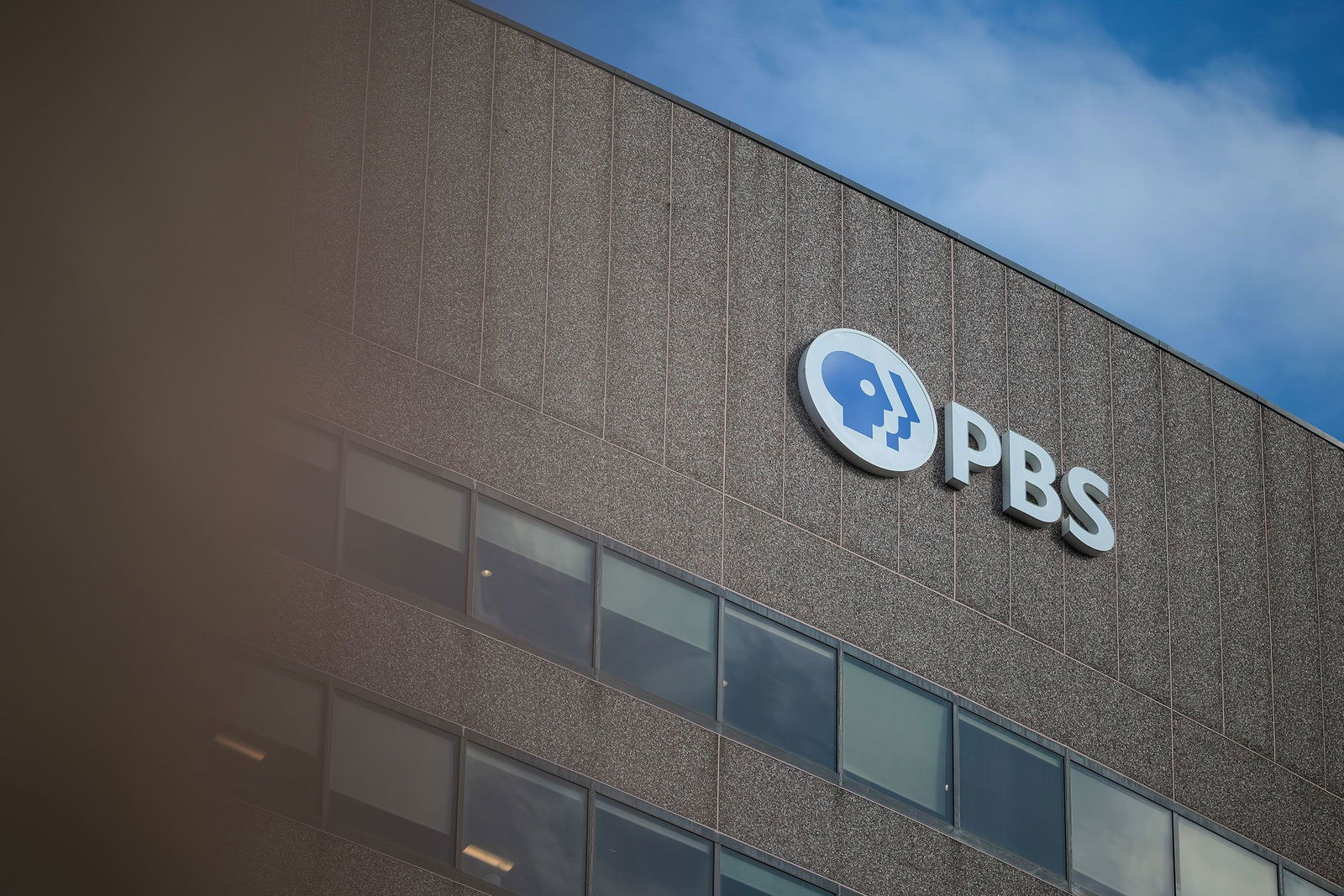Trump’s victory over PBS and NPR ‘bias’ will be ‘devastating’ for rural areas, station leaders say

A sign for the Public Broadcasting Service is seen on its building headquarters in Arlington
By Brian Stelter, CNN
(CNN) — Public television stations will be “forced to make hard decisions in the weeks and months ahead,” PBS CEO Paula Kerger said Thursday, after the Senate voted in the middle of the night to approve a bill that cancels all the federal funding for the network.
Once the House passes the bill, as expected, the Corporation for Public Broadcasting’s budget will be zeroed out for the first time since 1967, back when television stations still broadcast in black and white.
It is a long-sought victory for President Trump, who has harshly accused PBS and NPR newscasts of being “biased,” and a long-dreaded disruption for local stations that bank on taxpayer support.
Public media executives say some smaller broadcasters will be forced off the air in the months and years to come. That’s because stations in rural areas and smaller communities tend to rely more heavily on the federal subsidy. Stations in larger markets typically have a wider variety of other funding sources, like viewer donations and foundation support.
Kerger said in a statement that “these cuts will significantly impact all of our stations, but will be especially devastating to smaller stations and those serving large rural areas.”
She pointed out that the stations “provide access to free unique local programming and emergency alerts.”
The two Republican senators who voted against the rescission, Lisa Murkowski and Susan Collins, both said they valued those aspects of public media, even while criticizing perceived bias of some NPR programming.
Most other Republicans, however, concentrated on the bias complaints above all else, and argued that the entire system is obsolete in the streaming age.
David Bozell, president of the Media Research Center, which has campaigned against the federal support for decades, celebrated the “historic rollback” in an X post overnight.
“PBS and NPR were chartered to provide objective journalism,” Bozell wrote. “Instead, we got drag shows for kids, gushing coverage of Democrats, and silence or smears for conservatives.”
Public media officials say critics completely distort what actually airs on stations.
Thursday morning’s report about the clawback on NPR’s “Morning Edition,” for example, was studiously neutral, and the hosts pointed out that NPR management was not involved in the news coverage of its own funding dilemma.
An NPR spokesperson did not immediately respond to a request for comment about the Senate vote.
But the public radio network has previously pointed to polling that showed broad support for public media.
Early Thursday morning, America’s Public Television Stations, an advocacy group for the stations, argued that the rescission “defies the will of the American people,” citing both the polls and the fact that Congress actually allocated the next round of funding earlier this year.
In 1967, when Congress created the corporation, it declared that noncommercial TV and radio “for instructional, educational, and cultural purposes” was in the public interest. Shows like “Sesame Street” and “Antiques Roadshow” sprang forth.
The public media system continued to enjoy bipartisan support from lawmakers for many years, even as conservative activists sought to strip away the taxpayer funding. Congress ignored proposals from past Republican presidents to cut the PBS and NPR budgets.
But Trump has proven to be much more assertive. Earlier this year Trump made it a priority to claw back the funding before the Corporation for Public Broadcasting was set to receive it in October.
“For decades, Republicans have promised to cut NPR, but have never done it, until now,” Trump boasted in a Truth Social post last month.
The exact impacts are uncertain, given the complex structure of public media and the various other revenue streams that exist.
But some local stations are already making changes. In New York, the operator of the powerhouse NPR station WNYC said Wednesday that its CEO LaFontaine Oliver is moving into a new position, executive chair, that’s been created in response to the threats to federal funding. Oliver will focus on “new funding models” and try to find financial support from other non-federal sources, the station said.
In San Francisco, the KQED radio and TV network said it is laying off about 15 percent of its staff, citing financial uncertainties.
“Despite today’s setback, we are determined to keep fighting to preserve the essential services we provide to the American public,” Kerger said.
The-CNN-Wire
™ & © 2025 Cable News Network, Inc., a Warner Bros. Discovery Company. All rights reserved.

